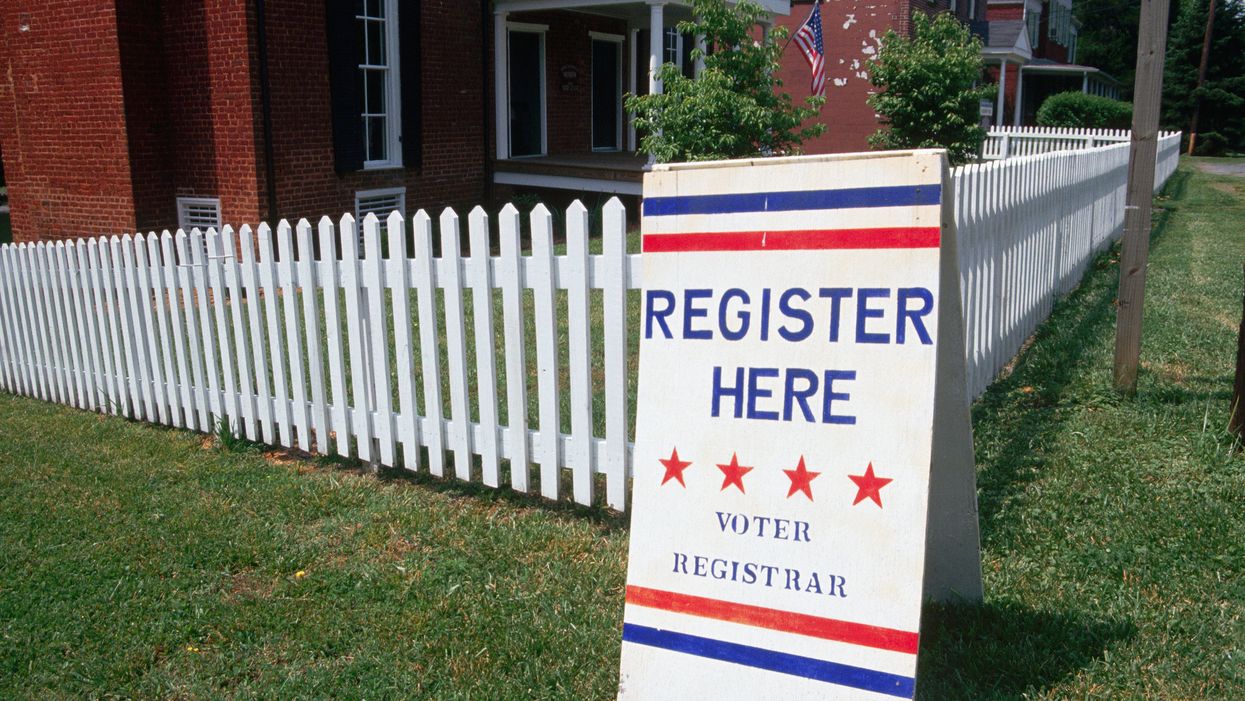Miller is executive director of Nonprofit VOTE, which works to help other nonprofits across the nation boost civic engagement and voter turnout among their allies.
Since the start of the coronavirus outbreak, we've seen a collapse in the number of voter registrations collected or updated because government offices were shuttered and in-person campaigns to find and sign up new voters were put on hold.
We're talking about millions of non-registrations here. It's not a small number. And as the pandemic has persisted the problem has been compounded by the large-scale displacement of people who have had to move, not only the millions in struggling families facing evictions because of the economic downturn but also the millions of students who've moved back home since their universities went fully virtual.
Election Day is in just six weeks. So what do we do to ease this urgent challenge to our democracy?
First and foremost, we need to make sure as many Americans as possible can register, or update their registration to reflect their current address, before their states' deadlines.
This is absolutely essential for voters who wish to take advantage of this year's wave of expanded availability of voting by mail. There is no way to receive an absentee ballot — or in many states even an application to vote remotely — if it's sent to your old mailing address and the Postal Service knows you don't live there.
Today is National Voter Registration Day — a major rallying call to register voters across the nation, which they can do on the National Voter Registration Day website. Started in 2012, it acts as a coordinated day of action between national and local organizations both executing live (and virtual) voter registration events and promoting the importance of being #VoteReady for the November election.
The deadlines for new registrations vary by state. None are in September, but 15 states have cutoffs during the first week of October and 11 more will stop signups a week after that.
The good news is that 19 states and Washington, D.C. are allowing same-day registration this year — meaning eligible people can show up at a place that allows in-person early voting, or to local polling places on Election Day, sign up to vote (or update their registration) and then immediately proceed to cast a ballot. The only downside, this time, is this option means an in-person experience in the face of potential health risks.
So what about voters who are not able to update their voter registration in time for the election? In many cases, they can still exercise their right to vote if they were previously registered elsewhere and their registration is just out of date — but it gets a little more complicated.
If a voter only moves across town, or within the same congressional district, but did not update his or her voter registration, that person can still vote thanks to protections provided by a 1993 federal law. However, they will likely have to go to their former polling location or a central voting site and vote in person. Voting files are often updated in the process to reflect the new address.
Voters who move to a different congressional district within the same state will have a tougher time. There are no federal laws that guarantee their right to vote if they don't register first. Some states do in fact let you still vote, but rules vary from state to state. In these cases, it's best to contact your local elections office or call the national Election Protection hotline.
Finally, voters who move to a different state within 30 days of the election might find the state they just moved to has a registration deadline or residency requirement that prevents them from registering and voting there.
These voters are effectively cast into registration limbo — but there is a way out, in part at least. They can contact their former state's elections office to request a special ballot that will allow them to at least vote in the presidential race.
Again, registering to vote at one's current address is the surest way to ensure you can vote, but if you do miss the deadline, don't give up. It may take longer or require a special trip, but in many cases you can still vote.
With so many rules to navigate, it's important that all of us committed to a vigorous civic life — nonprofits, libraries, universities, businesses and election officials alike — help the communities we serve understand the rules. Our democracy will be stronger for it.



















